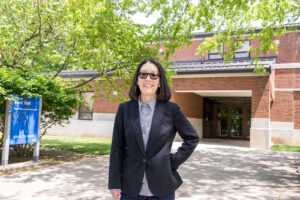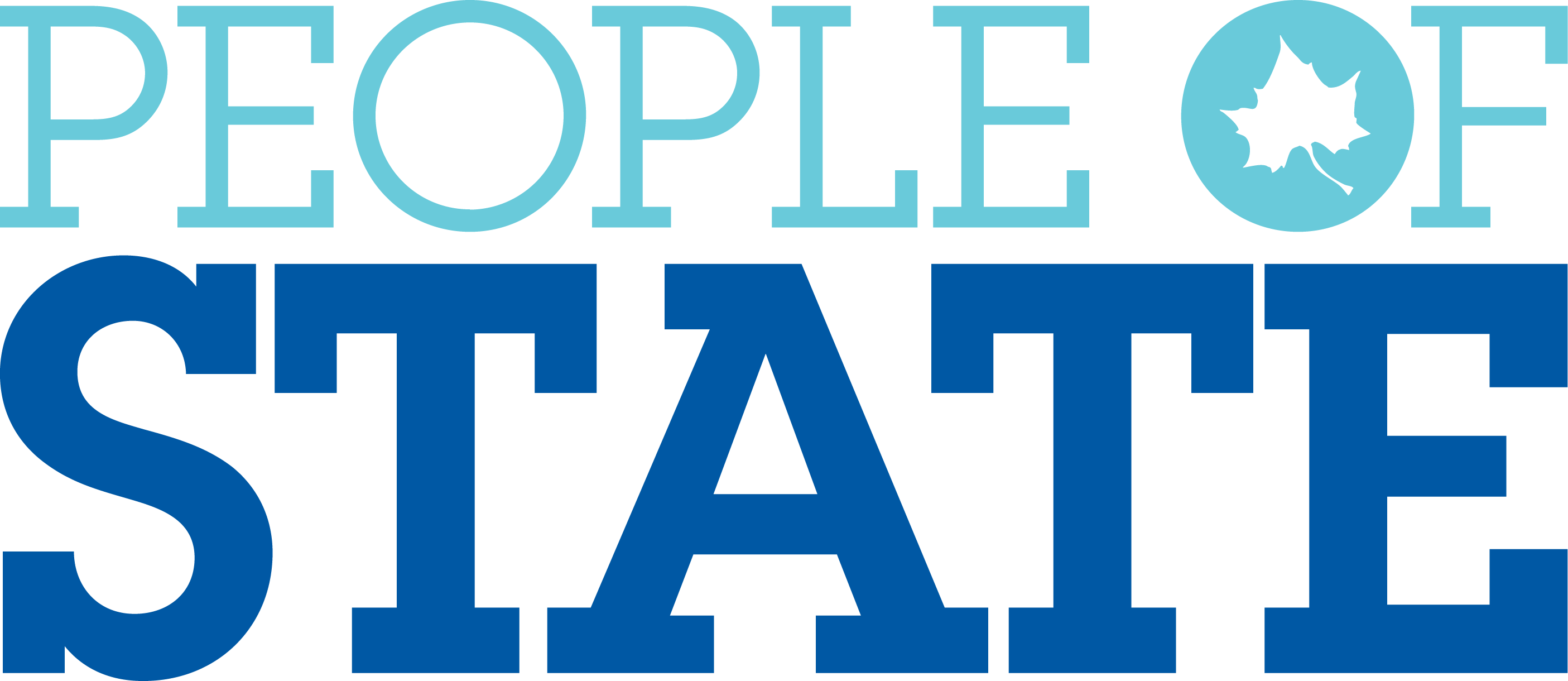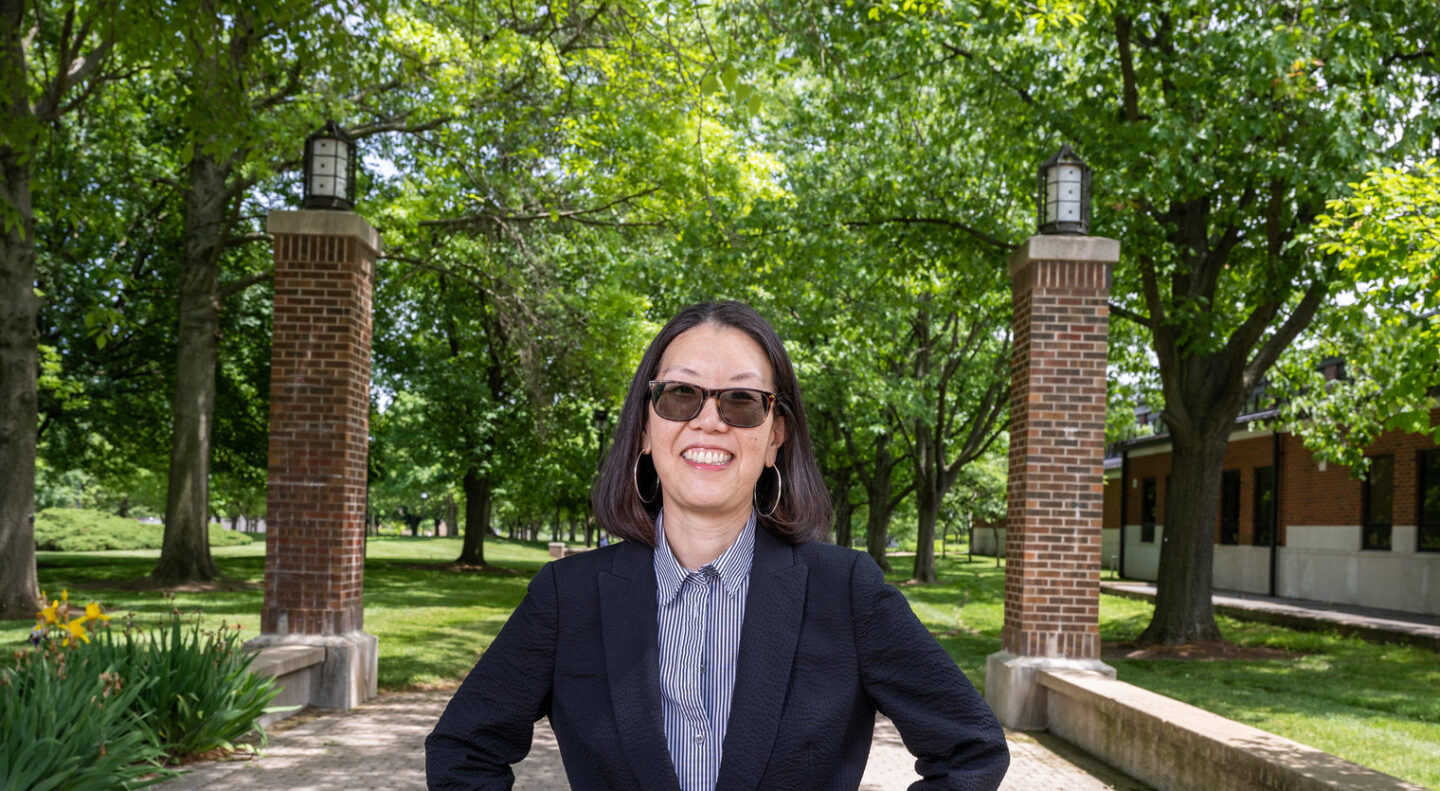
Katherine Lee
By Kasy Long
May 30, 2023
English Professor at Indiana State University
Associate Professor of English Katherine Lee, PhD, loves to discuss contemporary American literature, popular culture, women’s literature, minoritized literature, and gender studies. Having recently served as interim chairperson of the Department of Multidisciplinary Studies, she wants students to explore their options and pursue a degree aligned with their interests.
Along the way, she engages her students’ opinions and provides cultural and historical contexts they can relate to in today’s society.
Explain your journey to Indiana State. What brought you to Indiana State?
I started my career at Bridgewater State University in Massachusetts, and while I very much liked the students and my colleagues, my husband and I wanted to live closer to our families —he’s from Michigan and I’m from Kentucky — and, if possible, work at a slightly larger institution. Luckily, after about a year-and-a-half at Bridgewater State, I got the job at Indiana State in 2004, and I have been here ever since.
What classes do you teach?
My specialties are in 20th-century and contemporary American literature and popular culture, particularly women’s literature and minoritized literatures, and in gender studies. I teach Multicultural American Literature (ENG 340), the undergraduate and graduate seminars on American Literature (ENG 447/547 and ENG 649), Women’s Literature (ENG 339), Literature and the Human Experience (ENG 239), Honors Freshman Composition (ENG 108), and on occasion, Gender and Theory (GNDR 400). I’m lucky in that I get to teach a whole spectrum of works, including film (in ENG 239), and it’s exciting to see the variations in students’ reactions to these works from semester to semester.
Describe your teaching methods. How would you describe your classroom environment?
The professors that I most responded to as a student looked closely at the assigned literature and focused on teaching us how to really read as opposed to skimming something for its plot, and how to appreciate the many ways authors use language: to create images that were sometimes beautiful and sometimes horrifying, to elicit emotional responses, to educate about certain moments in history, to make us reflect on our thoughts and actions, and so on. As a result, I try to do much the same in my own classes. I offer lectures on elements such as cultural and historical context or, in upper-division courses, theoretical approaches to a work, but ideally, I like to converse with students. I already know what I think about the readings, so I want to hear what they have to say.
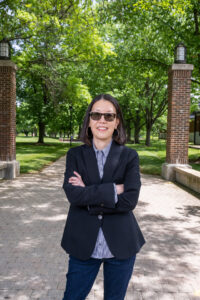
Describe the Department of English. What are the unique qualities of the English program for Sycamores?
Indiana State’s Department of English offers students a chance to learn how to express themselves for a variety of audiences and in a variety of contexts, how to interpret, and how to ask incisive questions rather than accept information passively. These skills appeal to employers in a range of fields, and I know fellow English majors who have gone on to become lawyers, writers for tech-based and financial firms, editors, museum and folklore archivists, authors who publish everything from comic books to romance novels, podcast interviewers, social activists, and, of course, fellow teachers, both in K-12 and higher education.
Describe the Department of Multidisciplinary Studies. What are the unique qualities of the department for Sycamores?
The Department of Multidisciplinary Studies [MST] allows students to design their own majors and minors, which truly is unique at Indiana State. Through MST, students can explore what interests them, and we have students who have designed degree plans in areas that range from public health to popular culture. MST also offers degrees in more traditional areas of study — Gender Studies, International Studies, Philosophy, and Sociology & Social Justice — all of which are extremely relevant in today’s society and for today’s employers, as reflected by our alumni, who work in areas like banking, government, non-profit organizations, the law, and education. I have been Interim Chair for three years (and am stepping down at the end of this month), and I will miss working so closely with the MST faculty.
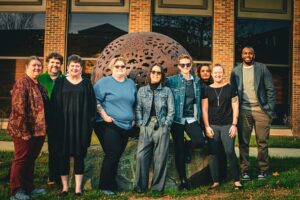
Faculty members of the Department of Multidisciplinary Studies (left to right): Dr. Ruth Fairbanks, Jamie Browning, Tina Pitts, Dr. A.J. Hobson, Dr. Katherine Lee, Dr. Lain Mathers, Dr. Namita Goswami, Dr. Amanda Lubold, and Dr. Adeyemi Doss.
What does Asian American Pacific Islander Heritage Month mean to you? Explain your heritage. What does your heritage and culture mean to you?
I’m Korean-American, which means that I’m proud of my Korean heritage and am also thoroughly American. I grew up in Frankfort, Kentucky, where there were virtually no other Asian people (at least not back then), and I encountered a fair share of ignorance and anti-Asian sentiment growing up, so I think it’s great that there’s a month dedicated to highlighting AAPI histories and cultures. But I’m also attuned to the fact that its very existence speaks to the fact that we continue to be misrepresented, misunderstood, and stereotyped. It’s still sometimes strange to encounter someone who automatically views me as a foreigner, when we likely have much more in common than not, unless they’re a fan of Duke basketball or something horrible like that.
What do you think prospective students should know about Indiana State?
Indiana State provides students with the personal attention they would typically receive at much smaller institutions and the diverse range of majors and disciplines that larger schools offer. Both my undergraduate and graduate schools were very big, and in many of my classes, especially at the undergraduate level, I was little more than a number: the professors never learned my name (how could they, when a class had 400 students?), and I didn’t really have access to them. When I had questions about going to graduate school, I had to seek out professors and hope they would answer my questions: some did, and some didn’t. Students at Indiana State won’t experience that same sense of invisibility.
